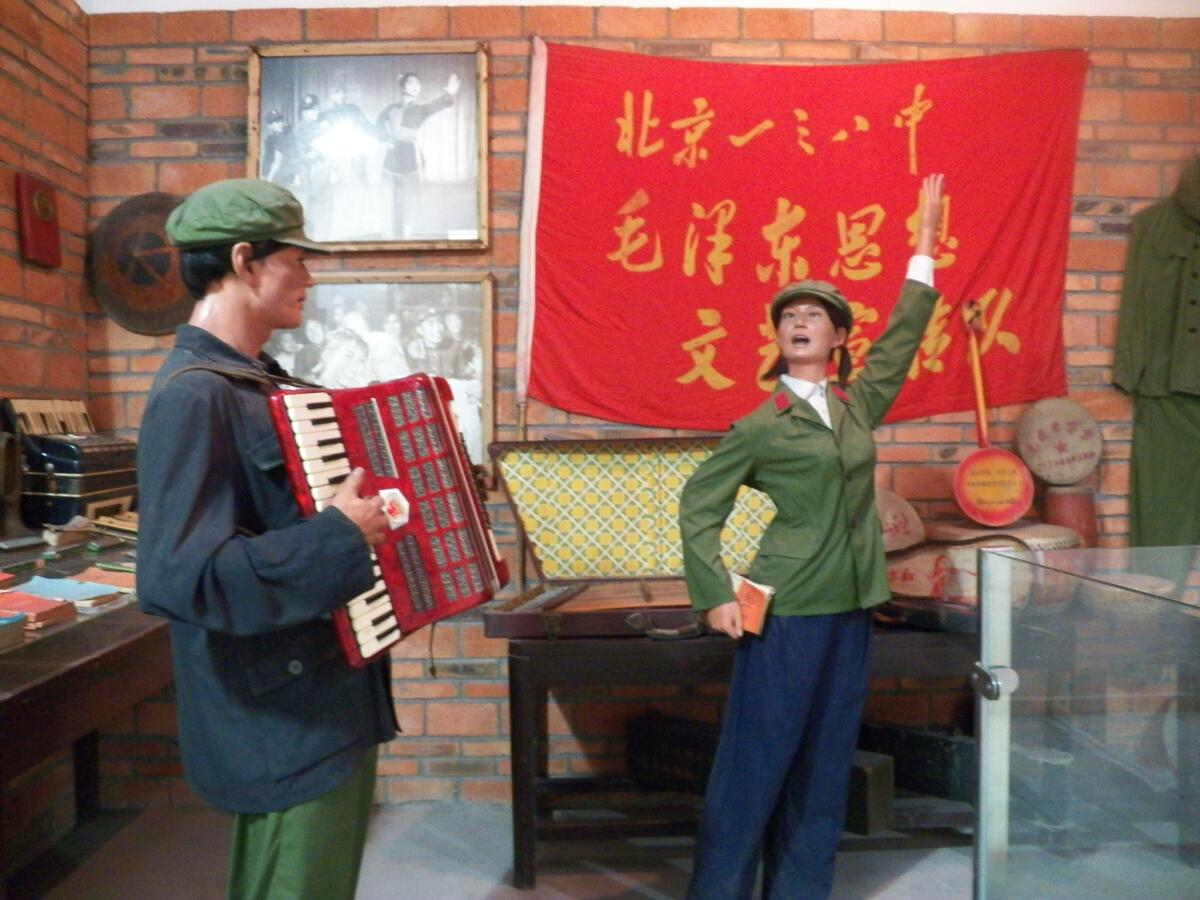China to send film, TV workers to rural areas to learn ‘correct view’

In a move that harkens back to the Mao Tse-tung era, China’s media regulator has announced a new program to send artists, filmmakers and television company staff to live in rural areas so that they may “form a correct view on art.”
The program echoes a campaign during Mao’s 1966-76 Cultural Revolution, during which schools were closed and intellectuals and urban elites were “sent down” to the countryside for years to work alongside peasants and ostensibly learn from them. In announcing the new initiative, many Chinese state media outlets compared the announcement to a speech Mao gave in the 1940s.
But it was not immediately clear who would be compelled to participate in the program, exactly where they would go, or what they would do once in the boondocks.
In a statement on its website Tuesday, the State Administration of Press, Publication, Radio, Film and Television said it would have production staff from 10 designated films and TV shows go to “grassroots” communities, villages and mining sites to experience local life.
Another provision stated that every year, 100 scriptwriters, directors, broadcasters and TV presenters would be sent to live for at least 30 days in border and ethnic minority regions, as well as areas “important in China’s revolutionary background.”
With the help of this program, artists “will be able to unearth new subjects, find their market and push forward their masterpieces,” the regulator said.
Television production teams from the star-studded Chinese New Year Gala on state-run CCTV are looking for folk songs, and the state broadcaster is carrying out selection and training programs in the countryside, the regulator said. Television crews from Jiangsu and Zhejiang provinces are also reportedly planning to visit revolutionary battle sites for background research for a cartoon.
Communist Party authorities maintain strict control over the media landscape in China, and have recently shown a greater inclination to direct and shape content.
In October, President Xi Jinping delivered a major speech on the arts in China to a crowd of notable actors, writers, directors and other media figures. He implored them not to be “slaves” to the market and warned that literature and art must not bear “the stench” of money. “The arts must serve the people and serve socialism,” he said.
State organs have quickly fallen in line. Cai Fuchao, the media watchdog’s chairman, trashed China’s television and media output last month, recommending a new concentration on “uplifting social values.” The Guangming Daily newspaper wrote in an editorial after Xi’s speech that writers and artists should resist “unhealthy thoughts, low tastes and mistaken ideas.”
Xi himself was one of the 17 million urban youth forced to live in the countryside by Mao during the Cultural Revolution, a turbulent time regarded by many as a lost decade for China. But Xi’s experience toiling in the countryside is frequently used to build his man-of-the-people image.
In a 2004 interview, Xi recounted the rough lifestyle that he lived as a teenager in rural Shaanxi Province and the coarse meals he ate. The article recently surfaced on the Internet and went viral.
Silbert is a special correspondent.
More to Read
Start your day right
Sign up for Essential California for news, features and recommendations from the L.A. Times and beyond in your inbox six days a week.
You may occasionally receive promotional content from the Los Angeles Times.






